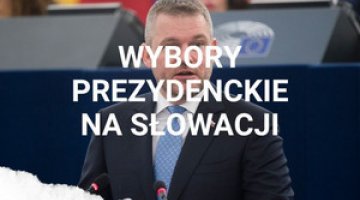An investigative journalist killed in Slovakia

The police found the dead bodies of Ján Kuciak, a 27-year-old investigative reporter, and his fiancée in their house near Trnava on 25 February. Both of them had been shot a few days earlier. The head of the Slovak police stated that this most likely was murder, and its motive was linked to the journalist’s work. Kuciak worked for the portal aktuality.sk (Ringier Axel Springer Slovakia group) and shed light, amongst other topics, on the tax fraud which entrepreneurs from circles linked to the government coalition party Smer and Prime Minister Robert Fico are suspected of. In the most recent period, Kuciak was working in co-operation with Italian and Czech journalists on a text concerning the activity of Italian businessmen in Slovakia who have contacts with Smer and who are suspected of being linked to the Italian mafia. The Slovak media are associating this murder with Antonin Vadala, a businessman active in Slovakia. A person with the same name and date of birth is reportedly wanted on an Italian arrest warrant and is suspected of having contacts with the 'Ndrangheta mafia. Vadala’s former business partners include the present secretary of the office of the governmental Security Council of Slovakia and a 30-year-old model who has since 2014 been one of the members of Prime Minister Robert Fico’s inner circle. They have both withdrawn from their work for the government until the matter is cleared up.
In reaction to Kuciak’s murder, Prime Minister Fico convened an urgent meeting in which the deputy prime minister and the minister of internal affairs, as well as the heads of the police, the prosecutor general’s office and civilian intelligence (SIS) participated. A special team of investigators has been tasked with clearing the matter up. The government has offered one million euros for any essential information that will contribute to catching the perpetrators. The main opposition parties have appealed for the dismissals of the deputy prime minister and minister of internal affairs, Robert Kaliňák, and the chief of police. The opposition claims that they are responsible for failing to ensure security to Kuciak, who informed the police in September about the threats he had received. Kaliňák is also presented in the media as a person involved in contacts with businessmen suspected of the tax fraud Kuciak wrote about. The minister of culture, Marek Maďarič, who had for a long time distanced himself from Kaliňák, resigned from his office on 28 February. The double murder outraged Slovak public opinion. A demonstration is planned for 2 March in Bratislava. The demonstrators will demand the killings of Kuciak and his fiancée are cleared up, along with the scandals Kuciak was investigating.
Commentary
- The ostentatious manner in which the double murder was committed suggests that this was an execution aimed at intimidating other journalists and discouraging them from raising certain issues. This is the first case of this kind in Slovakia’s history. Previously, investigative journalists were occasionally intimidated by influential businessmen, or met with pressure from state authorities, and their work was also influenced by the oligarchisation of the Slovak media. However, the main obstacle is the deficiency of funds necessary for conducting laborious investigations; as a result few journalists are engaged in investigative journalism in Slovakia.
- Most of the circumstantial evidence suggests that criminal circles involved in fraudulently obtaining state or EU subsidies might be engaged in the murders. Regardless of the role politicians or civil servants might play in this, Kuciak’s murder is a big problem for Robert Fico. To stem any speculation that the government camp might be involved in the murder, the prime minister has undertaken actions aimed at proving that clearing up the case of the journalist’s death is an issue of top priority. The topics the journalist wrote about above all concerned businessmen (Marian Kočner and Ladislav Bašternák) suspected of multi-million tax fraud to which politicians from Smer and, above all, the minister of internal affairs, Robert Kaliňák, are linked. The information about possible links between politicians from Smer and the Italian mafia additionally escalates the conflict between Smer as a government coalition party and a significant section of Slovak journalist circles. Prime Minister Fico has used offensive language to describe the work of journalists for years, therefore, in the context of Kuciak’s murder, some commentators are assigning responsibility to him for creating the atmosphere of a ‘witch hunt’ with regard to the media.
- The murder of Kuciak has made the global media interested in the situation in Slovakia. Numerous publications concerning corruption-based connections between criminal groups and Slovak politicians have appeared. This will additionally mobilise the Slovak government to clear up this matter. Information regarding the oligarchic arrangements, which the co-governing party Smer is part of, and corruption at the top levels appeared only sporadically in the foreign media until recently. This made it easier for the government in Bratislava to cherish the image of Slovakia as a state where the rule of law is unchallenged, the government wants closer integration with the EU, and the economy is developing rapidly. The engagement of Italian journalists, amongst others, in the investigation concerning the activity of the Italian mafia in Slovakia will certainly make it more difficult to further promote this narrative.
Photo credit: AP/EAST NEWS




